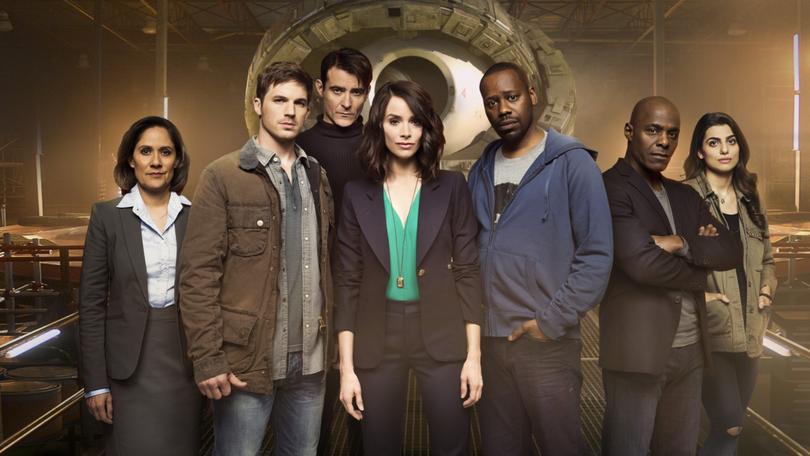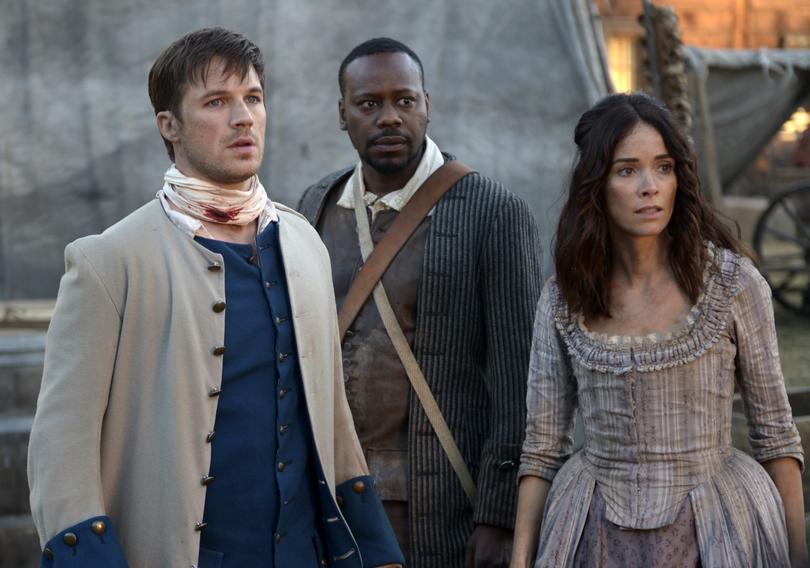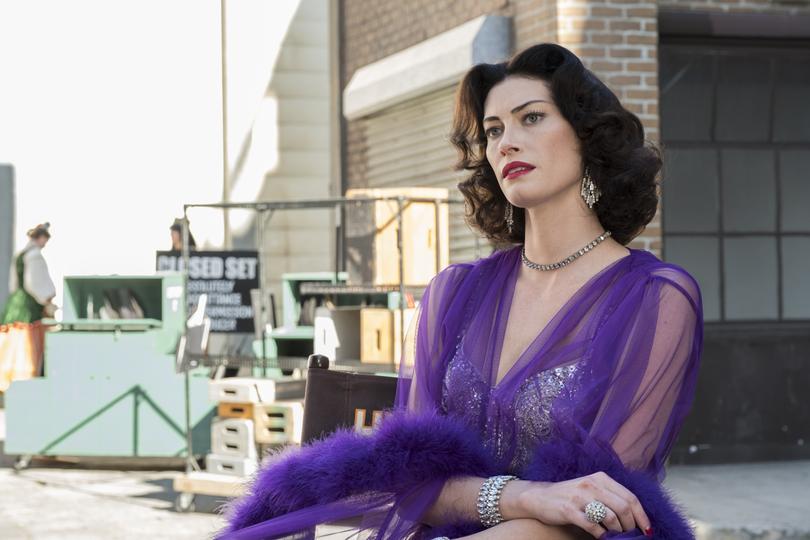Timeless was cancelled too soon, thankfully it lives on in streaming

It is a truth universally acknowledged that any kid growing up in the 1990s learnt about history and the world and the history of the world from The Simpsons.
More than any class or textbook, The Simpsons was everyone’s teacher, expanding our knowledge on American presidents, nuclear technology (ye gods), the tale of David and Goliath, and that everyone listens to white men aged between 18 and 49.
Yes, there are history teachers who make the recitation of events past compelling, revealing how what came before shaped who we are today. But, let’s be honest, TV has been pretty great at making it interesting – not always accurate but the broad strokes, and you can always do the Wikipedia rabbit hole dive later.
Sign up to The Nightly's newsletters.
Get the first look at the digital newspaper, curated daily stories and breaking headlines delivered to your inbox.
By continuing you agree to our Terms and Privacy Policy.One TV series that never got its due thanks to its swift cancellation after two seasons was the 2016 show Timeless, which was created by Shawn Ryan and Eric Kripke.
Ryan and Kripke both know how to make TV that hooks you. Ryan is behind The Shield, Last Resort and the popular albeit quite terrible thriller The Night Agent while Kripke’s resume includes The Boys and Supernatural. What links those projects is that they are compulsive, which, for sure, fits Timeless.
The series was what the industry calls “high concept” in that it’s not just about six friends who hang out in their apartments and local coffee shop, shooting the breeze. It has a suspend-your-disbelief central premise.

In Timeless, it’s that there is a tech mogul named Connor Mason (Paterson Joseph) who secretly created a time travel machine. Mason reveals its existence when a former NSA asset turned terrorist named Garcia Flynn (Goran Visnjic) steals it and starts making trips to the past. It’s a big no-no.
Which forces Mason and a Homeland Security agent named Denise (Sakina Jaffrey) to recruit a team to stop Flynn. This consists of historian Lucy (Abigail Spencer), special forces soldier Wyatt (Matt Lanter) and genius programmer Rufus (Malcolm Barrett), who chases Flynn along the space-time continuum in a “lifeboat” machine that can track where and when he goes.
Across its 28 episodes, there’s also the reveal of a wider conspiracy involving an organisation called Rittenhouse and all the principal characters are somehow connected, even if they don’t know it.
The goal of Rittenhouse is to change pivotal moments in history so that the present can be shaped to empower and enrich the conspiracists. It’s super dastardly.
Timeless follows the grandfather paradox theory of time travel in that whatever changes you make in the past will affect the future, effectively creating a new branch of the timeline. For example, in the pilot episode, Lucy returns from trying to stop Flynn from messing with the 1937 Hindenburg disaster (he does anyway), only to discover that her sister Amy has been erased from existence.
Every episode of Timeless is a mini history lesson, but infused with the drama and high stakes of a broadcast TV series – what a combination.

While it is predominantly American-focused, it occasionally crosses borders into Europe (France in WWI, the Korean War, Germany in 1944, Paris in 1927 as Charles Lindberg lands The Spirit of St Louis), and almost functions as an “American History for Dummies”.
Among the historical moments they find themselves in – Bonnie and Clyde’s robberies, the Apollo 11 mission to the moon, the assassination of Abraham Lincoln, the death of Jesse James, Eliot Ness’s persecution of Al Capone during Prohibition, Salem Witch Trials, the attempted assassination of Ronald Regan, Watergate, US Civil War and Benedict Arnold’s betrayal during the Revolutionary War.
Sometimes, the series gives its weight to someone’s overlooked contributions in history, such as Hedy Lamarr, a Golden Age of Hollywood actor who was also a prolific inventor. Lamarr is inserted into a dramatised plotline in which she helps the heroes from stopping the destruction of the only print of Citizen Kane.
Obviously, that didn’t happen in real life, but the episode gives you a greater understanding of Lamarr, who as well as starring in films including Samson and Delilah came up with frequency hopping technology that would lead to the eventual development of Wi-Fi.

That season two episode also gave valuable context to the role of propaganda and William Randolph Hearst’s influence on yellow journalism, the precursor to tabloid media.
Woven through all this are the interpersonal relationships between the characters, including some will-they-won’t-they romantic subplots. And let it never be forgotten that Abigail Spencer is one of the great underrated stars on TV who hasn’t had quite the career worthy of her talents.
Despite good word-of-mouth and favourable reviews, Timeless was cancelled after its first season but saved three days later by the network who agreed to a 10-episode second instalment.
When the axe swung again, the fans’ despondency was so loud the creative team was given a two-hour movie to wrap things up. At least now, with streaming, Timeless can live on.
Timeless is streaming on 7plus and Prime Video

